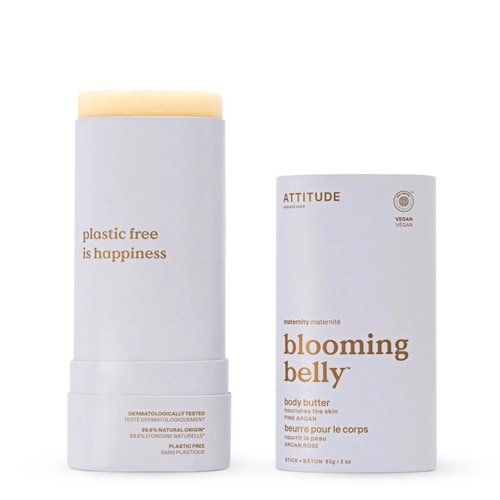[vc_row][vc_column][vc_column_text]Many women are focused on following good nutrition habits during pregnancy. But what happens once your baby is born?
Delivering a baby causes a slew of
dramatic changes to your body, from the shrinking of your uterus to breastmilk production and much more. This makes properly nourishing your rapidly changing body a crucial part of helping it function as it should. So, when it comes to
postpartum nutrition, what you eat matters for both your own wellbeing and the health of your baby.

Postpartum Nutrition: Why Is It so Important?
While your body is no longer growing a human, it now needs to heal from doing so and adapt to this next phase of life. While the exact definition of the postpartum period (also known as the “fourth trimester”) is up for debate, it generally refers to the first six to eight weeks after delivery, or up to 12 weeks post-birth according to the
American College of Obstetricians and Gynecologists. Still, others consider the postpartum phase the entire first year after having a baby, so the definition is really up to you.
Either way, what you eat in the postpartum phase can make a big difference on yours and your baby’s health. Here are just a few reasons why:
1. It can promote faster and better recovery.
A variety of nutrients are needed to help replenish nutrient stores in your body and help with healing from rips, tears and any other delivery-related injuries. A few key nutrients include
iron,
folate,
calcium and
vitamin C.
2. It supports nutrient-dense breast milk production.
Breastfeeding requires at least an extra
330-400 calories per day, and where these calories come from matters. What you eat can affect both the
quality and quantity of milk you produce for your child.
3. It may help lower the risk of postpartum depression.
Postpartum depression is a common mental health disorder that affects up to 20% of women.
Research has found that following a diet full of nutritious foods like fruits, vegetables and fish can reduce the risk of experiencing postpartum depression.
4. It promotes overall wellbeing.
Just like all other phases of life, the quality of your diet plays a large role in how you feel, and how healthy your body is. Practicing good postpartum nutrition is also a key part of fighting against nutrition-related diseases.
What foods and nutrients should postpartum nutrition include?
What to eat during the postpartum period is similar to following a generally healthy diet. Here are some key nutrients to focus on in the postpartum period, along with the food sources that supply them:
1. Omega-3 fatty acids
The omega-3 fat DHA is crucial for infant
visual and brain development, and it can be passed on from mother to child via breastmilk. For mothers who are not breastfeeding, consuming
omega-3 fats still has a slew of health benefits including reducing inflammation and supporting heart health. Supplementing with omega-3 fatty acids during pregnancy and in the postpartum period has also been shown to help
reduce symptoms of postpartum depression.
Food sources of omega-3 fats include
salmon,
sardines,
tuna,
walnuts and
chia seeds. The
Dietary Guidelines for Americans recommends that women who are pregnant or breastfeeding eat 8 to 12 ounces of low mercury fish per week.
2. Choline
Choline is a mineral that is
needed in higher amounts during pregnancy and its needs are highest while breastfeeding in the postpartum period. Its benefits extend from supporting heart health to brain health, including being a crucial nutrient for infant brain development. In fact, along with the omega-3 fatty acid
DHA,
choline has been found to support child neurodevelopment as well as have beneficial effects on things like birth outcomes, growth, morbidity and inflammation.
Choline is found in dairy products along with other protein-rich foods like meats, eggs, some types of seafood,
beans, lentils and peas. It is also found in potatoes and some other plant foods. Choline passes through breast milk to provide its health benefits to the growing child.
3. Vitamin D
The benefits of
vitamin D in the postpartum period are extensive. Just a few of its major health benefits include supporting a strong immune system as well as helping support positive mental health, which can include protecting against
postpartum depression and anxiety.
There are only a few natural food sources of
vitamin D, including egg yolks, fatty fish like salmon and sardines and some types of mushrooms. Other foods are commonly fortified such as orange juice, milk and some cereals. You can also obtain vitamin D via sunlight and supplementation.
4. Iron
Childbirth causes a significant loss of blood, which carries
iron. This makes it crucial to replenish lost iron in the postpartum phase, regardless of whether you are breastfeeding or not. Getting enough iron helps reduce the risk of iron-deficiency anemia, supports proper thyroid function, and carries necessary oxygen to all parts of your body.
It has been found that having iron deficiency and anemia during the postpartum period can have long-term health implications for the mother and child, and that mothers with low iron stores during delivery and after childbirth may experience fatigue, altered brain function and symptoms of depression.
Food sources of iron include meat, fish and poultry as well as plant sources like green leafy vegetables, beans and
pumpkin seeds.
5. Iodine
Iodine needs are significantly higher for postpartum breastfeeding mothers compared to non-pregnant or nursing women, at 290 mcg/day compared to 150 mcg/day. Iodine is essential for normal thyroid function. Since thyroid dysfunction is common in the postpartum phase, getting enough can help prevent iodine deficiency and may even
help prevent conditions like postpartum thyroiditis and hypothyroidism. The increased iodine needs are also recommended to support proper
infant growth and neurological development.
Food sources of iodine include dairy products like plain Greek yogurt and milk, as well as seafood, whole wheat bread, eggs, and iodized salt.
Should you take vitamin supplements in the postpartum phase?
The nutrients highlighted above are just a few of the nutrients to pay extra attention to in the postpartum phase. For mothers who are breastfeeding, it is recommended to continue taking your prenatal vitamins, or consider switching over to a
postnatal and nursing formula to help meet the increased nutrient needs for both you and your baby during lactation. In addition, it is also very important to follow an overall healthy and nutrient-dense diet providing a wide variety of foods.
Sample postpartum nutrition meal plan
Here’s an example of what a nutritious day of eating may look like for a postpartum mother:
Breakfast: Piece of whole wheat toast with avocado on top and a side of eggs
Snack: Whole grain crackers or veggie sticks dipped in hummus
Lunch: Turkey wrap made with a whole wheat tortilla, condiments and veggies of choice and freshly carved turkey breast (option to add cheese). Pair with a piece of whole fruit
Snack: Homemade trail mix made with roasted pumpkin seeds, dried fruit and nuts of choice
Dinner: Roasted salmon with baked sweet potatoes and a side salad made from leafy greens
Snack: Plain Greek yogurt topped with fresh berries and a sprinkle of chia seeds
Remember to also stay hydrated by drinking plenty of water in addition to eating a balanced and nutritious diet. Breastfeeding mothers need even more water to keep up with their milk supply while also keeping themselves hydrated and their bodies functioning well.
In summary
The importance of good nutrition should be emphasized not only during pregnancy, but also in the postpartum period and beyond. Proper postpartum nutrition can help support normal recovery for mothers as well as the wellbeing of their newborns. Thankfully, you don’t need to make any drastic changes to your diet to obtain the benefits. Simply making an effort to consume a variety of whole, nutrient-dense foods and continuing to take a pre or postnatal vitamin supplement can help you achieve what’s best for you and your baby.[/vc_column_text][/vc_column][/vc_row][vc_row][vc_column][vc_text_separator title="Featured Products" border_width="2"][vc_row_inner equal_height="yes" content_placement="middle" gap="35"][vc_column_inner width="1/3"][vc_single_image image="173796" img_size="full" alignment="center" onclick="custom_link" img_link_target="_blank" css=".vc_custom_1711127116967{padding-right: 7% !important;padding-left: 7% !important;}" link="https://www.vitacost.com/nordic-naturals-postnatal-omega-3"][/vc_column_inner][vc_column_inner width="1/3"][vc_single_image image="173795" img_size="full" alignment="center" onclick="custom_link" img_link_target="_blank" css=".vc_custom_1711127140477{padding-right: 7% !important;padding-left: 7% !important;}" link="https://www.vitacost.com/maryruths-organics-prenatal-postnatal-liquid-multivitamin"][/vc_column_inner][vc_column_inner width="1/3"][vc_single_image image="173794" img_size="full" alignment="center" onclick="custom_link" img_link_target="_blank" css=".vc_custom_1711127160601{padding-right: 7% !important;padding-left: 7% !important;}" link="https://www.vitacost.com/gaia-herbs-lactation-support"][/vc_column_inner][/vc_row_inner][/vc_column][/vc_row]





